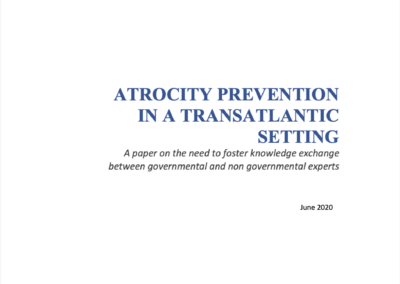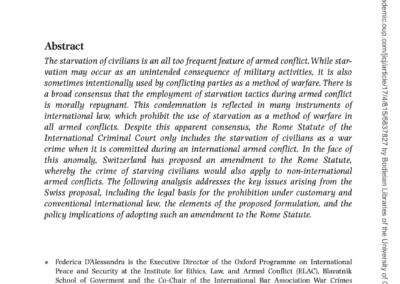Home > Research themes >
Atrocity Prevention
ELAC offers a focal point to scholars and practitioners interested in the prevention of atrocity crimes perpetrated against populations (these violations include genocide, crimes against humanity, war crimes, and ethnic cleansing). Some of ELAC’s early work broke new ground by conceptualising atrocity prevention as ‘crimes prevention’, and distinct from conflict prevention; by creating a strategic framework to analyse both systemic and targeted prevention; and by analysing the conditions for effective prevention in particular cases. Through both normative and policy-oriented research, we monitor and analyse international action to prevent or halt ongoing atrocity crimes; explore strategic, tactical, and analytical challenges to the improvement of preventive capacity; support the adoption of preventive tools, strategies, and platforms; and ensure the coherent development of both normative agendas, and of international legal and policy standards. Our work is regularly grounded in key contemporary challenges, as well as opportunities, in the atrocity prevention space. Most recently, IPS research agenda has continued to expand our atrocity prevention work by engaging with the impact of new technologies on prevention and accountability; anchoring States’ prevention in existing legal duties and due-diligence obligations; and supporting structural UN reform pursuant to the ‘accountability turn’.
Photo Credit: CC license available here.
Publications
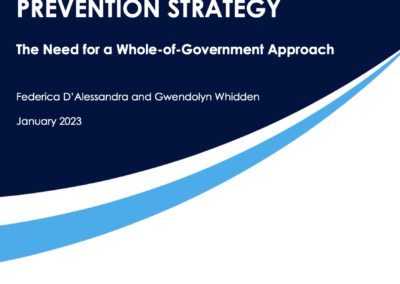
Developing a UK Atrocity Prevention Strategy
Policy Brief, Oxford Programme for International Peace and Security, January 2023 Read more
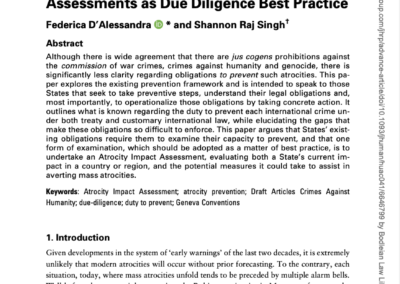
Operationalizing Obligations to Prevent Mass Atrocities: Proposing Atrocity Impact Assessments as Due Diligence Best Practice
Journal Article, Journal of Human Rights Practice, July 2022 Read more
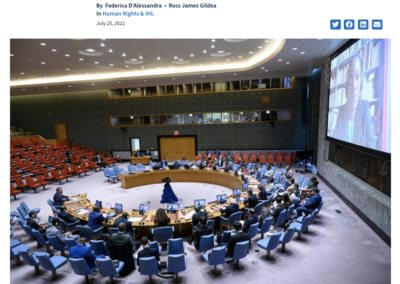
Technological Change and the UN Framework of Analysis for Atrocity Crimes
Policy Paper, Stimson Center, July 2022 Read more
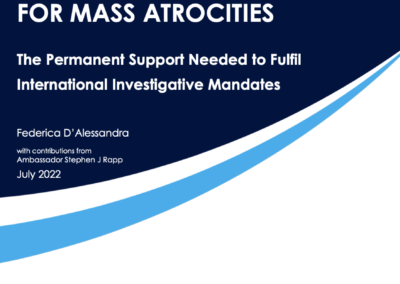
Anchoring Accountability for Mass Atrocities – The Permanent Support Needed to Fulfil International Investigative Mandates
Policy Brief, Oxford Programme for International Peace and Security, July 2022 Read more
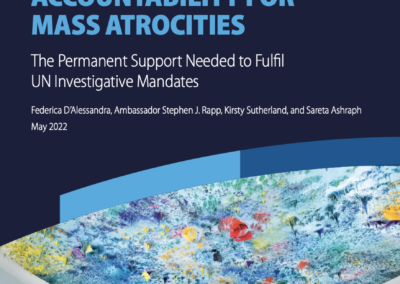
Anchoring Accountability for Mass Atrocities – The Permanent Support Needed to Fulfil UN Investigative Mandates
This research paper examines the role of UN investigative mandates in probing serious violations of international human rights, humanitarian and, increasingly, international criminal law, as well as their role within the broader international justice ecosystem. Read more
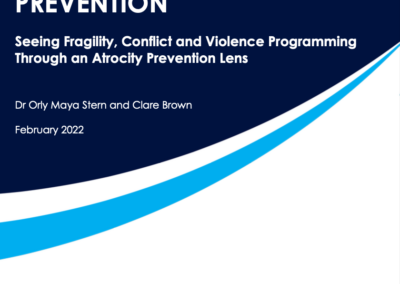
Mainstreaming Atrocity Prevention: Seeing Fragility, Conflict and Violence Programming Through an Atrocity Prevention Lens
Policy Brief, Oxford Programme for International Peace and Security, February 2022 Read more
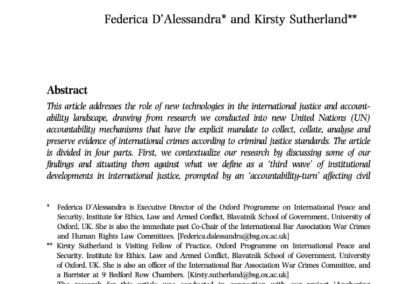
Promises and Challenges of New Actors and New Technologies in International Justice
Journal Article, Oxford Programme on International Peace and Security, June 2021 Read more
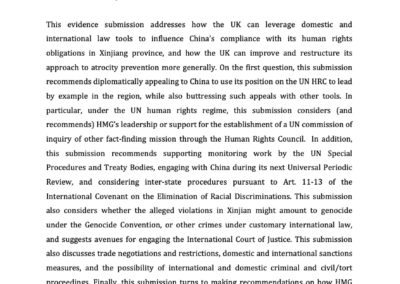
Written Evidence Submission to the UK Parliamentary Inquiry on Xinjiang
Written Evidence, Oxford Programme on International Peace and Security, December 2020 Read more
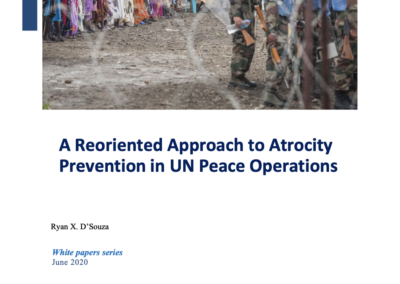
A Reoriented Approach to Atrocity Prevention in UN Peace Operations
White Papers Series, Oxford Programme for International Peace and Security, June 2020 Read more
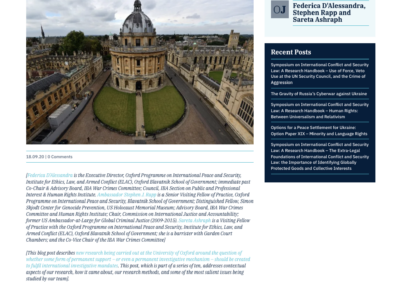
Anchoring Accountability for Mass Atrocities: Providing the Support Necessary to Fulfil International Investigative Mandates (Part I)
Blog Post, Opinio Juris, September 2020 Read more
Policy Engagement
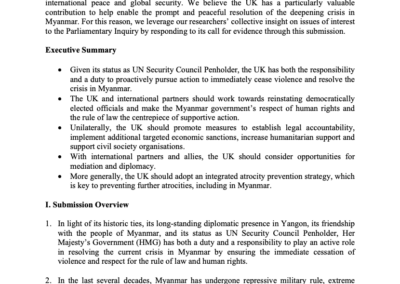
Written Evidence Submission to UK Parliamentary Inquiry on the UK Response to the Myanmar Crisis
Written Evidence, Oxford Programme on International Peace and Security, May 2022 Read more
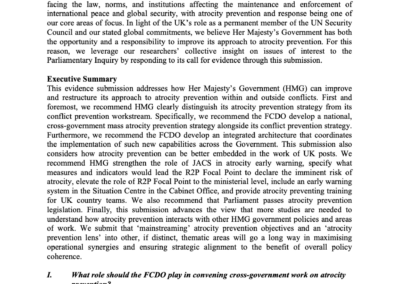
Written Evidence Submission to UK Parliamentary Inquiry on Government’s Approach to Atrocity Prevention
Written Evidence, Oxford Programme on International Peace and Security, January 2022 Read more
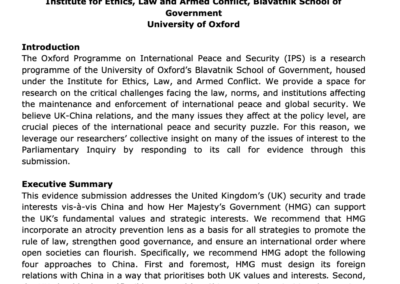
Written Evidence Submission to UK Parliamentary Inquiry on UK Trade and Security Relationship with China
Written Evidence, Oxford Programme on International Peace and Security, April 2021 Read more

Written Evidence Submission to the UK Parliamentary Inquiry on Xinjiang
Written Evidence, Oxford Programme on International Peace and Security, December 2020 Read more
People

Federica D’Alessandra
Deputy Director, ELAC | Director, Oxford Programme on International Peace and Security (IPS)
